Text by Lyndsey Walsh
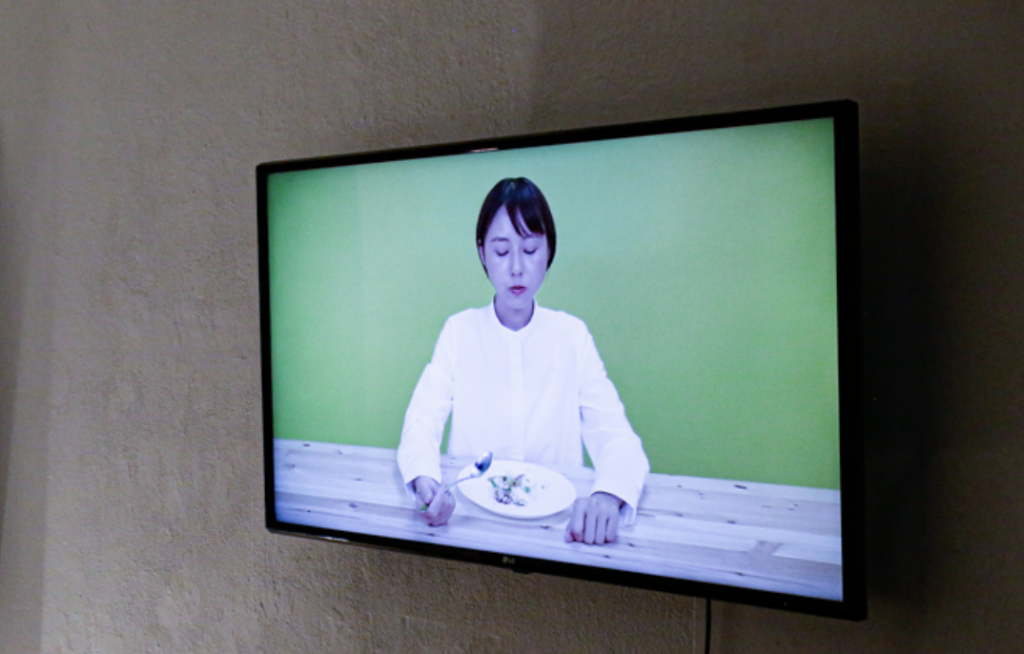
Following the opening of Hackers, Makers, Thinkers: Collective Experiments in Social Fermenting, Art Laboratory Berlin, in collaboration with Weizenbaum Institute at Universität der Kunste Berlin and The Einstein Center Digital Future at Technische Universität Berlin, hosted their two-day conference packed with a lineup of panels, workshops, curatorial exhibition tour, and exploratory discussions.
The first day of the conference took place at Designtransfer at the Universität der Kunste Berlin’s campus, with a simultaneously running livestream on the Art Laboratory Berlin YouTube channel. Panels were split into the exploratory themes of Hacking Food Narratives, Symbiotic Elements and Sonic Cyborgs. In addition, they included a brief intermission for the conference in-person attendees to tour the student exhibition at Designtransfer.
The first panel Hacking Food Narratives, featured two presentations by Hackers, Makers, Thinkers’ exhibiting artists Rice Sisters Brewing Club and Pei-Ying Lin. Their talks were interwoven into a greater dialogue examining notions of social fermenting and food systems with the addition of guest speaker Oron Catts from SymbioticA Centre of Excellence in Biological Arts and the Tissue Culture and Art Project.
Throughout their panel, the speakers highlighted the often-forgotten role of microorganisms that contribute to our food systems and the problematic aspects present in the speculative (and not so speculative) future of food concerning laboratory-grown food products.
Rice Sisters Brewing Club, composed of members Hyun-Jin Shin, Soyoon Ryu, and Hyemin Son, started off the panel by elaborating on their framework of social fermentation, which has served as inspiration for the thematic investigation of Art Laboratory Berlin’s conference. In their talk, Rice Sisters Brewing Club member Hyemin Son posed a question that is at the central thesis of their work:
Can we take fermentation, a process in which a substance ripens to change into different substances over time beyond the boundaries of food culture and imagine it as a social model, a way of life, and another system?
In the actions of the Rice Brewing Sisters Club, the sisters are not only culturing microorganisms through their workshop Seokkeodungdung: Doing ‘Social Fermentation’, but their ongoing work and its actively fermenting components also permeate the Art Laboratory Berlin gallery space with their project TERRESTRIAL-CELESTIAL.
These threads of social fermentation link and interconnect with Pei-Ying Lin’s talk on her artwork Virophilia. However, within Virophilia, there is an ever-present sense of unease about the entanglements between cultural systems, food systems, and microorganisms that have become only more present given how large the impact of the pandemic has had on culture and daily routines, one that continues to shape and hold an influence over our lives.
Oron Catts rounded out the discussion on food by looking at technological changes in food culture. He explored his work with Ionat Zurr in the Tissue Culture and Art Project Disembodied Cuisine and their more recent project alongside Steve Berrick’s Sunlight, Soil & Shit (De)Cycling (3SDC).
The comingling of these creative perspectives on food narratives explores the larger convergence of cultural stories, technologies, and practices that continue to shape how we cultivate and culture nutrients in our environment. Whether these stories and narratives emerge from the speculative imaginary, have been passed down from cultural guardians and aunties, or invading the cultural landscape from technoscientific dreaming, they expose how the process of making food is a more than human act, one that both socially ferments as well as biochemically ferments.
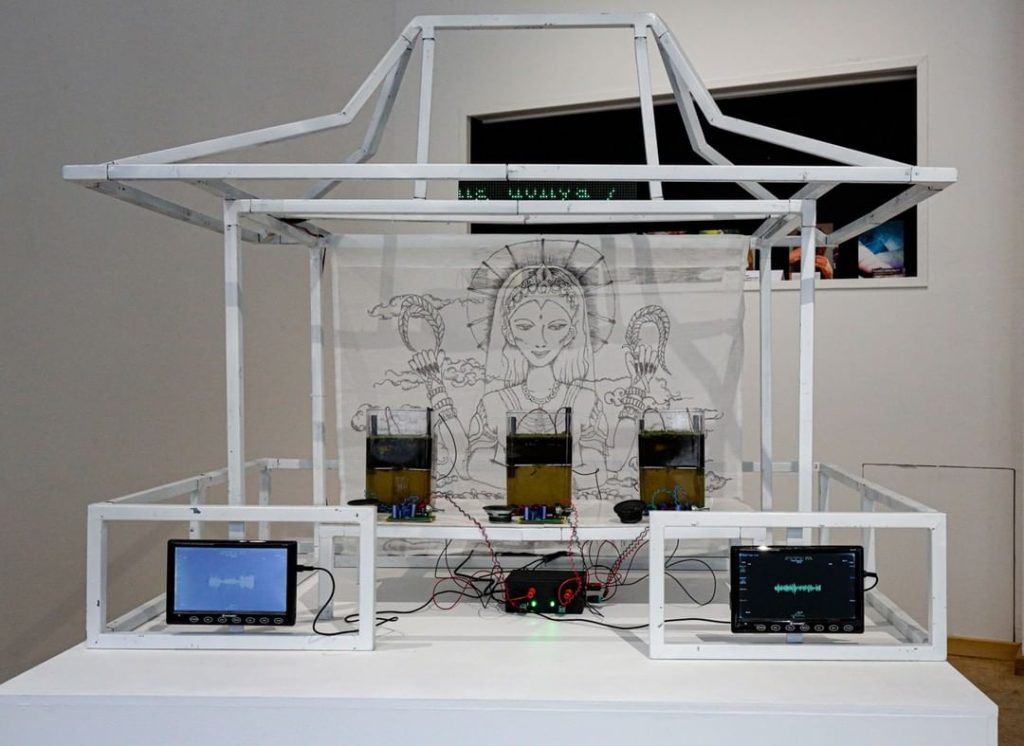
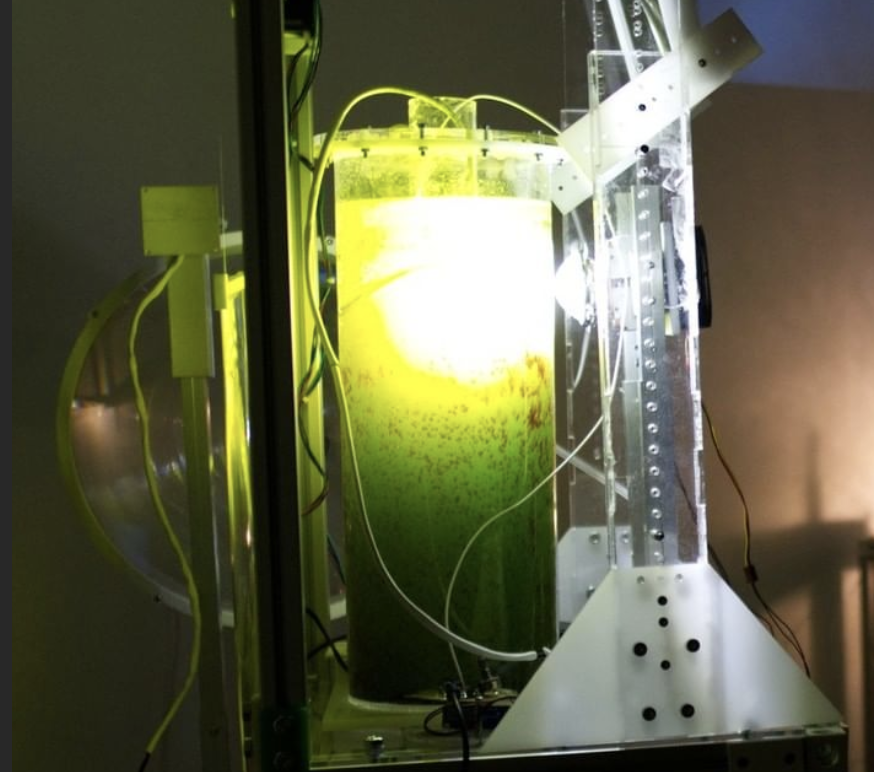
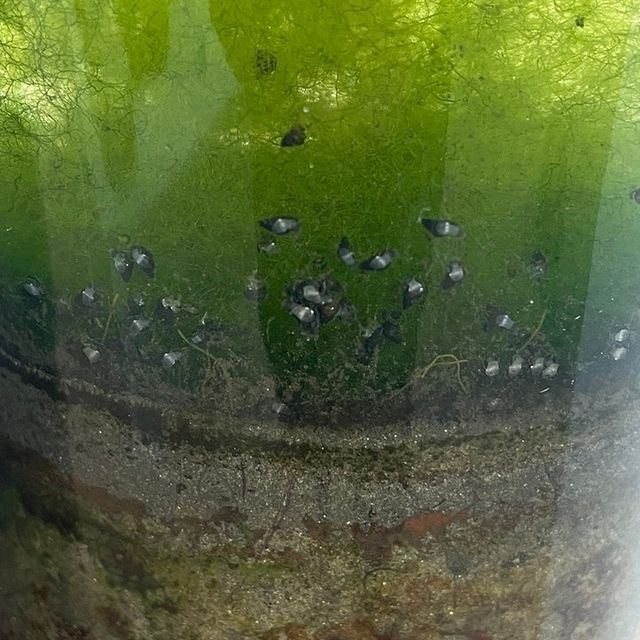
Art Laboratory Berlin curator and panel moderator Regine Rapp raised an interesting question regarding the speakers’ overlapping interests regarding metabolic processes in food narratives. Metabolism as a metaphor denotes what Hannah Landecker refers to as allowing the term regulation to be a conduit between economic and biological domains – or, more broadly, the manifestly historically specific nature of scientific endeavour in its porosity to cultural context [1].
In relation to the food narrative, these shifts in social relationships between humans and nonhumans also play out the turning over of nutrients and materials in a manner that mimics metabolism within food systems as a whole. This begs the question, can fermentation seek to find and reconnect social and food systems in tumultuous times, when regulation seems to be disordered, as the porosity between biological and cultural remains fluid?
The second panel, curated around the theme of Symbiotic Elements, featured anthropologist and architect Sénamé Koffi Agbodjinou, exhibition artists Cammack Lindsey and Irene Agrivina, and biologist Shujie Wu from the Freie Universität Berlin.
This transdisciplinary panel began with Sénamé Koffi Agbodjinou giving a talk via Zoom on An Ethic of Entangled Models. Throughout Agbodjinou’s talk, many ideas were presented concerning the separation between nature and humans and humans and other humans in their communities. Looking at groupings and communities as the first technology that humanity has created, Agbodjinou’s talk critically traversed the many borders and viruses that have corrupted our communal sense of building relationships and impacted the use of humanity’s greatest and first technological achievement.
Second, Cammack Lindsey presented the background of their work Holobiont: Relics from the Revolution by both telling and singing to us the story of cyanobacteria. Combining science fiction, musicals, and set design, Lindsey explores the entanglements in potential industrialised uses of cyanobacteria and their role in toxic marine blooms, diving into evolutionary history by recounting how their bodies are a living relic of symbiosis in eukaryotic organisms.
Irene Agrivina’s talk on Entangled Beauty also revealed insights into her project Entangled Beauty — A Perfect Marriage, featured in the Hackers, Makers, Thinkers exhibition. The work explores the role and use of cyanobacteria as a biobattery to create a prototype of a worship shrine to the Javanese goddess of fertility Dewi Sri. Weaving together traditional Indonesian mythology with biology, Agrivina spoke on the multiple layers of symbiosis woven between culture, the environment, and microorganisms.
Lastly, Shujie Wu presented her scientific research from her paper publication titled Diversity of Far-red Cyanobacteria in Extreme Environments. In her research findings, she presented how photosynthesis can occur even in darkness and the potential future implications of this research for emerging biotechnologies and biotechnological solutions.
Throughout the second panel, the speakers continuously referred to symbiosis. Art Laboratory Berlin curator and panel moderator Tuçe Erel took a moment to reflect on the nature of scientific and artistic perspectives comingling within these discussions, which on their own had taken on another form of symbiosis. During the discussion, a reminder by Oron Catts on the role Cyanobacteria played in causing the extinction of a multitude of species due to the creation of oxygen in our atmosphere critically re-examined the values we seem to project onto symbiosis and opened up a line of questioning about who really benefits from these bonding ties and connections, as well as an awareness about the importance of perspective when telling stories of symbiosis.
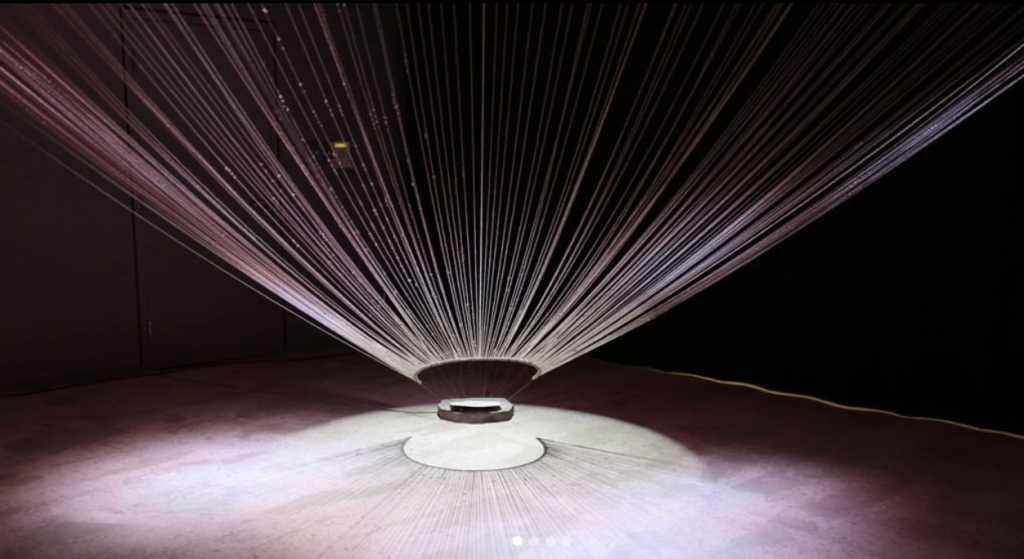
The last panel was curated around the theme of Sonic Cyborgs. It featured talks from exhibition artists Constanza Piña Pardo, Interspecifics members Leslie García and Paloma López, along with Interspecifics collaborator and artist Maro Pebo and artist and designer Nayeli Vega.
Constanza Piña Pardo first presented her work Khipu featured in the Hackers Makes Thinks exhibition. Piña Pardo explained the context of “Khipu”, which are a “prehispanic electrotextile computer” created through the process of knot-making. Then, diving into her own work and explorations, she unravels the process of creating her installation at Art Laboratory Berlin and its meaning.
Nayeli Vega followed suit and further discussed “Khipu” in her own work and research titled Codes in Knots. Looking at how knots can be encoded, Vega builds off from the traditional Khipu practices to form new possibilities of knot-making that can extend and interact tacitly with the knowledge encoded in them.
Following Vega’s discussion, Interspecifics members Leslie García and Paloma López spoke about their work Codex Virtualis. The project is part of an art and science research on using artificial intelligence in image synthesis to create an open-ended taxonomic collection of speculative lifeforms. During their discussion, they opened up about how they have worked to encode knowledge systems from non-white and western traditional practices to question the colonial nature of artificial intelligence.
The last speaker of the day was Maro Pebo, who kept her talk short, entertaining, and to the point. Pebo presented On Symbiosis, bringing up many themes and takeaways from Donna Haraway’s writing on kinship and the cyborg. Covering Moist Media and transspecies thinking, Pebo highlighted various artistic works within this critical framing.
Panel moderator Michelle Christensen from the Weizenbaum Institute at Universität der Kunste Berlin and The Einstein Center Digital Future at Technische Universität Berlin opened the discussion to have the artist assess where we all seem to stand with Haraway’s philosophical writing and opened up the question to ask if the framing of these relationships in Haraway’s work has been highly romanticised. The speakers reiterated many of the points made in their presentations about bringing non-western and non-white traditions back to the same level of regard held for Haraway’s work.
Reflecting back on social fermentation as a guiding force in the conference, how these ideas interact, comingle, and mutate or are metabolised shifts and transforms how we view our everchanging world and environment. These collective experiments into creative practice, scientific knowledge, interspecies dialogue, and technoscientific extensions and mediations explore how porous these disciplines and focus areas actually are. It grapples with how both science and culture are involved in the interrelatedness of ideas, nutrient systems, and knowledge.
Ending on Haraway’s work brought the conference full circle in a way, and moderator Michelle Christensen reminded us that even Haraway herself sees her ideas and philosophy as knowledge to continuously turnover. Through social fermenting, we are able to take this matter and these materials and transform them into new narratives, new meanings, and new ways of building and forming relationships.






